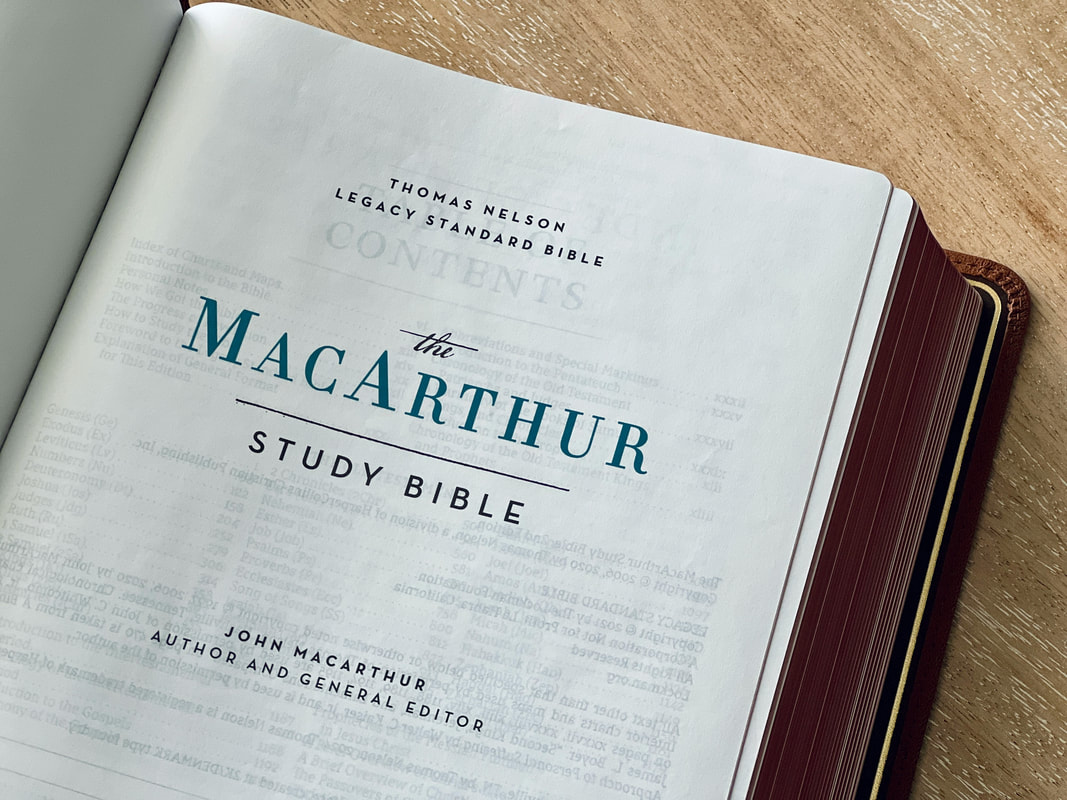 Sorrow of the Soul Animals, and other creatures that God has made, act according to instinct and based primarily on fulfilling their primal needs such as food, rest, or mating. However, even in the wild these creatures have been observed to exhibit behaviors that seem to convey happiness, excitement, sadness, or even grief. Many domesticated animals, including pets, livestock, and those kept in unnatural habitats such as zoos, develop even more humanistic behavior around emotional stimulation probably as a result of unintended environmental training. But one of the things that separates humanity from the rest of creation is that when Adam was created he was made not just a body but a living soul (Genesis 2:5-7). Other creatures, at least among the natural creations, do not have souls. This means that even if their body or brain can comprehend some levels of emotional intelligence the deeper experience goes deeper than emotion to the immaterial part of us called our soul. At some point we may consider the brighter side of these experiences but in this post I want to consider our experience of sadness and grief as believers. Blessed Are Those Who Mourn It is the natural state of things for people to be happy because they are experiencing great victories or pleasures. But, as Jesus teaches these first century Jews, who are still under the obligation to the old covenant and its law, He flips the understanding around (Matthew 5:4). The question that we should be asking is how is it that they are happy? And what is it that they are mourning? In God’s covenant with Israel, He had given clear stipulations about how the nation would be blessed if they were faithful and how they would be cursed if they were disobedient. Therefore, what these mourners are sorrowful over is the unfaithfulness of the people to the commands of God. Also, the reason that they will be comforted is because their tears are the fruit of their faithful hearts. As we consider mourning as believers we must realize that as those who trust in Christ it is right for us to be sorrowful over sin. First, it is right as those who because of the work of grace in our lives are eager to repent, to mourn therefore over our own sin. We desire obedience and love Christ’s commands, so we should expect to experience sorrow over even the simplest or slightest actual sin. However, like the blessed ones of this old covenant age who Jesus was teaching, we also ought to grieve the sins of other people, especially the sins of the church. When brothers or sisters sin whether against us or others we ought to be sad. Not because Christ's sacrifice is sufficient to save them but because the testimony has been hindered. Jesus is glorified through the obedience of His people. Godly Grief The Apostle Paul tells us that godly grief leads us to repentance (2 Corinthians 7:8-11). But the righteous grief of believers also accompanies genuine love and care. We are grieved over broken relationships, church division, and strife among believers because of the people. The grief is both a natural and supernatural reaction in direct proportion to how much we have loved. You and I are probably not driven to tears over every catastrophe that scrolls by in our feed but we are broken over the same things when they happen to those we know and love. The only way to avoid grief and sorrow on this side of heaven is to live your life completely void of love for anyone and that price is simply too high!
0 Comments
 The Rest of the Story Last week we began to consider the idea of vocation and calling. Now, calling is a much bigger subject than just ministry vocations. Whatever the Lord has given you to do for the blessing of others and the support of your family is a calling (1 Thessalonians 4:9-12). But today I want to resume our consideration of calling in relationship to ministry. The objective nature of the New Testament instructions about the competency, character, and accountability of those leading God’s people in the church should clearly take precedence over a personal, subjective experience of calling. In this post I want to consider these three categories of competency, character, and accountability as it relates to the role of pastor in our Lord’s churches (1 Timothy 3:1-7). Gifting A shepherd has a couple of primary roles. One is that he must be able to lead the flock to feed on the best grass and the refreshing waters (Psalm 23:1-2). The equivalent for pastoral ministry is that he must be able to teach the Scriptures accurately and effectively (Titus 1:9). In addition, he must be able to retain the confidence of the congregation to obey those things taught in the Scripture. This means that simply being a good communicator or powerful orator does not make someone a qualified pastor. The man must also be someone that the sheep can trust so that when they cannot see the path or the pasture that it leads to, they can trust him as he faithfully follows the direction of the Lord in the Bible (2 Timothy 1:13). One of the tragedies in our modern culture, especially in the so called “Bible Belt,” is that pastors are held stereotypically in such low esteem because so many who have taken the title have dishonored the Lord through their lazy, lavish, or licentious lifestyles. This leads us to our second area of consideration. Character Most of the qualifications given in the Scripture for the kind of man who can serve well as a pastor are about the man’s character not his gifting or competency. I think that this is because so much of applied discipleship is learned through imitation of a God’s life more than the implementation of rhetorical instructions. These character qualifications listed in both 1 Timothy 3 and Titus 1, are behaviors that reveal a person who is producing the fruit of the Spirit in their daily life (Galatians 5). It is also important to point out that these character qualifications are not something that only elite Christians can attain. To the contrary, the point is that these are the normal qualities of a mature believer whether elder or not (2 Peter 1:3-8). Pastors are not supposed to be superchristians but all believers are supposed to be growing in Christ, in maturity, holiness, and godliness. Without this example among the leadership the flock won’t know how to live in this godly manner (Hebrews 13:7-8). Responsibility The under shepherd is a leader but not a lord or a king or an owner. The sheep belong to the master who owns both the flock and the servant. This is important because the world considers status and position in leadership terms as places that get privilege and authority. However, Jesus clearly teaches His disciples that leadership in His kingdom is far different (Matthew 20:25-28). In this text, Jesus teaches His disciples that in His kingdom economy the great ones are the servants and the leaders are the slaves. Jesus Himself set this example by coming to serve and not to be served. So, when we consider the accountability of the pastors of the Lord’s churches we must recognize that their authority rests on their responsibility before the Lord. In the Scriptures believers are commanded to obey and submit to their leaders because the leaders will have to give account for the souls under their ministry. This is a grave and sobering reality for anyone who takes this responsibility and it is why men should watch their doctrine and their lifestyles carefully. Honestly, for anyone who takes seriously the commands and instructions of Scripture the weight is too great for any man to truly bear but in humility the Spirit strengthens His servants for the good of His people. Praise the Lord for only He can truly shepherd His people.  Vocation Our English word “vocation” is derived from the Latin word for calling, which is a synonym of the Greek term ‘kletos’ or ‘kaleo.’ These words refer to using your voice to call out to someone or to extend an invitation. The Apostles, especially Paul, used these words to refer to the calling that Jesus has placed on them as Apostles and the calling to salvation that we have received as believers (1 Corinthians 1:1-2;26). This has also led to the understanding that men who God would use in the service of His people as pastors or deacons are called in a unique way. However, we should note that vocation should and does refer to far more than what would usually be referred to as the sacred work of fulfilling one of the offices in the New Covenant assemblies (Colossians 3:23). If we are working hard as unto the Lord whatever work we are doing is for His glory and to provide for the blessing of our own lives and families which is according to His will. In this way, we must understand that all moral and legal employment is sacred work. Farmers, welders, bankers, Law enforcement officers, truckers, teachers, home makers, and most any other vocations that we could consider should be understood by us as sacred work for the Lord. Today, I want to consider the concept of calling in ministry and the requirements that come not from tradition or historic practice or pragmatic policies, but from the Scriptures. Desire When most Christians today speak about calling into “the ministry,” they are probably expressing to their own church fellowship that they have experienced a subjective call to “become a preacher” or to the pastoral office. However, this is not really derived from any example in Scripture. The original disciples who Jesus made into Apostles were not discerning a merely subjective sense that God wants them to surrender to this work. Rather, they were objectively called by Jesus to follow Him and then objectively appointed to be apostles (Mark 3:13-19). Even the conversion and calling of the Apostle Paul which was more dramatic and sensational still followed this clear objective pattern (Acts 9:1-22). I am not saying that there is no internal subjective reality to entering the work of serving a pastor/ teacher in the church. I only want to note that objective reality is more important than the individual's own personal experience. The internal experience of the person who should be considered for this kind of ministry is the experience of a desire and aspiration to do this work (1 Timothy 3:1). Most men in the modern age who have at any time sought advice about whether they should enter into vocational church work have been met with the statement, “If you can do anything else and be happy, then don’t do it.” I was given this advice, and I have given this advice, but I must admit I think it’s wrong. If you don’t want to teach or shepherd God’s people then don’t. But if you do have a desire to go to that office, that is a good thing. A man with this aspiration should seek to discern not the secret will of God but rather his own motives. So long as the motives are not sinful, such as a desire for power or attention or something like that, then he should proceed to consider if he has the objective requirements of the office. But the consideration of these qualifications deserves a post on its own. So we will end today with an old fashioned, to be continued…  Longevity Last week I wrote a little tribute to the legacy of Dr. John MacArthur. As I said in that post, the long duration of his faithfulness, not just in ministry, but in one place and one church is something to be commended. This week I want to think about what endurance should look like for all Christians, according to what the Bible says. In addition, what are the keys to enduring faithfully over the long haul in our walk with the Lord? Of course, the first prerequisite to perseverance in the faith is that a person must be in the faith. Modern culture is full of people who have mental beliefs that do not translate into moral or behavioral change. But our actions will always, eventually demonstrate our true convictions. Without a true relationship with the Father, we cannot grow in our connection with Him. Without a true devotion to Jesus, we cannot grow in our commitment to Him. And without being truly indwelt by the Holy Spirit, we cannot continue to walk with Him. Confidence But assuming that we are born again people who have trusted in Jesus and receive the promised Holy Spirit, then we must understand that saving faith is also living faith (Ephesians 1:11-14). Now, the use of the adjective “living” implies that there is activity. So every true Christian is actively growing in their personal faith and in the fellowship of the body of Christ, called the local church. While it is possible for a true believer to go through seasons when the growth is shorter and slower, the trajectory of the Christian life should always be toward holiness and godliness (2 Peter 3:11-14). Persistence Now that we are living in this dynamic active faith in the resurrected Lord Jesus and animated in us through the working of the Holy Spirit, we must seek to persist in submission and obedience. When the Apostle Paul wrote to the Roman church, he urged them in the middle of an extended section explaining justification by faith, to understand the chain reaction from suffering to hope (Romans 5:1-5). In these verses, he says that suffering produces endurance. One of the major struggles for our society today is that we have no tolerance for struggle. This means that we usually can find some diversion or distraction to ease the experience of our struggles. The problem is that once the rough edge is blunted and dulled we no longer get the point. Suffering was intended to produce endurance that would build the character of Christ in us. But when we are able to avoid these hardships we tend to lose the personal gains (2 Peter 1:8-11). A patient and persistent pursuit of Christ through trials and tribulations will be the instrument in God’s hand to bring to maturity in Jesus! Hope One of the greatest hindrances to our endurance is a loss of hope. When we stop believing that our situation can or will ever get better. This lack of hope is also accompanied by a loss of control. But this is the crucial point where we must begin to trust fully in God’s purposes and promises, regardless of the dire circumstances that we see with our eyes. Rather, with eyes of faith we must fix our gaze on Jesus knowing that His power will accomplish His good will. The goal of our endurance is not just to survive our current struggle, but to thrive through the hope we have in Jesus Christ. Ultimately, we can endure any difficulty because our hope is sure because it is founded, not in some fanciful fairytale or modern theoretical system, but on the sure word of God (Hebrews 11:1-6).  Qualifications This week, one of the most impactful and prominent pastors and Bible teachers in the world went to be with the Lord. I must admit my own naivete, because I expected my social media threads to be full of praise and appreciation for both the man and his ministry, which was of course exactly what I found. However, some have also taken this solemn occasion to slander and attack this faithful brother because of the failures and problems they had with his teaching and ministry. I am of course talking about the longtime pastor of Grace Community Church in Sun Valley, California, John MacArthur. Before I begin to share how the Lord has blessed and benefited me through Dr. MacArthur’s ministry, I want to express condolences to his family and those who knew this brother in real life and are grieving with the true hope of Christ. I didn’t know John MacArthur, but like so many I was privileged to learn from his preaching and his pen. I also want to express sadness that anyone would feel this to be an appropriate time to complain and criticize his life and ministry. With that being said I did not agree with MacArthur on everything or maybe even on most things but in this post I want to focus on a few of the most helpful and beneficial things I learned from this faithful brother in the Lord. One last important qualification, the Apostle Paul warns the Corinthians against the kind of preacher preference or celebrity culture that elevates the instrument too highly. Who is MacArthur? Who Sproul? Servants through whom you believed, as the Lord assigned to each… but God gave the growth (1 Corinthians 3:4-7;21-23)! It is on this basis I express my gratitude to Jesus for these blessings conveyed through His servant John! Biblical Exposition I remember when I first encountered faithful biblical exposition in a local church where I served teaching youth at Scotland First Baptist Church. Our pastor was a faithful man leading us verse by verse through books of Scripture. I must admit in those early days I was so ignorant of Christian influence that I didn’t know the difference between C. H. Spurgeon and John MacArthur. But later, as I became more well acquainted with the teaching of Grace To You, I also deeply appreciated how MacArthur was tenaciously welded to the text. We are all fallible and imperfect teachers but it always has seemed safest to me to stay as near the very words of the Bible as possible so if I’m wrong the hearer has the word itself to correct any error. MacArthur made no apology for what Scripture said on any topic. He studied long and taught strong, the text to those under his ministry. Biblical Lordship The most personally impactful aspect of John MacArthur’s teaching for me was his strong voice proclaiming the lordship of Christ, particularly in salvation. The book of his that had the greatest influence on me was “The Gospel According to Jesus” where MacArthur shows so clearly the tangible and Biblical fruit of truly knowing Jesus as Saviour AND Lord! This book was one of the works that helped me think through both my own subjective experience of salvation and my theological understanding of this central Christian doctrine. Biblical Confidence If nothing else MacArthur was one who had a steadfast faith. Once he believed that he had understood the instructions and teaching from God about salvation, evangelism, discipleship, ecclesiology, eschatology, or any matter of truth or practice he would stop at nothing to teach, obey, and live according to that faith. As I mentioned earlier in some of these areas I don’t agree with his conclusions but his faithfulness is exceedingly commendable. One area where this faithfulness is manifested clearly is in his longevity not only in ministry but in the same church. Of course, MacArthur is well known for his writing, broadcasting of teaching, leading a college and a seminary. But what is most impressive to a humble pastor in the trenches of ministry, is his decades of faithful service to one church home. Many pastors don’t have the option of this because of no fault of their own. In all cases is it the Lord who wills the redeployment of His servants from one place to another. But Dr. MacArthur’s tenure at Grace Community Church is extraordinarily admirable. Finally, at the end of his life he had no regrets. Having given his whole life to the task of teaching the Bible to people verse by verse, he was able at the very end to say that he wouldn’t change anything. He would not have softened his tone. He would not have avoided the battles. He would not have changed his schedule. He would not have sought to save himself from the pain of investing in people who disappointed him or even attacked him. He had no regrets! “I would never change anything. A life of exhausting my understanding of scripture has yielded fruit in my life, my wife's, my children, my family, my church, and far beyond. I'm only as useful as I am attuned to the truth that comes from heaven.” -John MacArthur (Video) “I realize I'm on the last lap. That takes on a new meaning when you know you're on the short end of the candle, but I am. All thanks and praise to God for everything he's allowed me to be a part of and everything he's accomplished by his word in these years of ministry. Grace and peace to you from God our Father and the Lord Jesus Christ.” -John MacArthur (Video)  Assumptions I just discovered a new podcast. The first episode dealt with a controversial issue regarding the existence of mountain lions or panthers in the natural state. If anyone is interested, it is called The Bear Grease Podcast with Clay Newcomb. I have had an interest in this subject ever since my late teenage years, so I listened intently. However, what caught my attention more than the stories of sightings, the compiling of evidence, or the objections from biologists or Arkansas Game and Fish commission personnel, was the insight into the psychology surrounding people's disposition toward the existence of these creatures. One of the officials being interviewed mentioned that many of the stories or accounts about the animals come from people who already had an opinion, and their experience is then interpreted in such a way as to confirm what they already thought was true. We see this all the time in politics and sports. If a person's preferred candidate is caught in some compromising scandal it's easy to assume that the evidence has been altered or the story has been wrongly reported. On the other hand, if the other side is found with even the least hint of impropriety then of course all the allegations and charges are certainly true. In sports, it is very difficult to be objective about calls being made by the referees or umpires because we are convinced even before the play has happened that it should go our way. Go to any high school ball game of any sport and sit on the home side and my point is self validating. But do we also do this with our spiritual beliefs? Have we concluded that certain assumptions must be true and then gone into the Scriptures or into our experience to seek to prove our point? Are the things that seem so obvious to us obvious because those are the lenses that we are using to evaluate the evidence? Traditions Have you ever wondered why the Pharisees, scribes, and priests did not recognize or receive Jesus as the promised Messiah? In hindsight it seems pretty clear the many ways that Jesus fulfilled prophecies and the law through His life and ministry. There may be many reasons, including the desire to preserve their own power over the regular Jewish people, which was threatened by the perceived radical teachings of this itinerant rabbi from Nazareth. Of course, Jesus also compares them to the blind reading the blind (Matthew 15:1-14). His point is that they have become blinded by their own doctrinal precision and long held traditions so that when God sent the promised hope to them they were incapable of rendering an accurate judgement about Jesus. You see, they had already formed a preconceived view of what the Messiah would be like and act like and Jesus did not fit their paradigm. So instead of reevaluating their own preconceptions, they simply concluded that He was not the Christ they were looking for. I actually think that they knew on some level that Jesus was the Christ, which is what makes their rejection of Him such a horrible and heinous sin (John 15:21-25). The point is that their bias was so strong that even with the confirmation of the miracles and ministry of Jesus they would not believe even what they knew was actually true. The cost to their worldview and traditions was simply too high for them to submit to the truth. Self Evaluation But what about me? It's easy to recognize the faulty assumptions of other people, but what about the assumptions I am making? This may be even more probable for someone who is already predisposed against traditions, because it can become easy to assume that all the traditions are wrong. However, Jesus did not chastise the Pharisees for keeping the good tradition but rather for rejecting the clear commands of God (Matthew 23:23). In the famous extended teaching of Jesus, which has been labeled the “Sermon on the Mount,” Jesus gives a clear warning meant to cause the prudent to examine one’s self first before judging other people. Since Jesus gave us this insightful warning I want to be careful about my own tendency toward confirmation bias and seek to be even more diligent to lay aside any anachronistic assumptions or personal persuasions in pursuit of the pure truth of God’s word. I hope you will join me!  1776-2025 Wow! Today we celebrate the 249th anniversary of the signing of the Declaration of Independence. I have heard that it was actually signed on July 2nd, but what’s a couple of days over two and a half centuries? The fathers of our country were not grieved because the crown was not providing for the privileges they felt that they deserved as loyal subjects but rather they were seeking liberty from the yoke of taxation prohibiting them from striving to build their own prosperity. I am afraid that today we have confused these categories of rights and privileges. The consequences of this kind of amnesia are that we think that we have a right to have things that in reality we only have the right to pursue those things. But I am getting away from the point I want to make in this post. In a similar way, we as believers can misunderstand the freedom we have in Christ because we have forgotten the purpose of God to make us holy like Jesus. Anarchy Today, we exist in an increasingly individualistic and selfish society. This reality means that we tend to understand freedom as being able to do whatever we want. However as we consider the ways that Jesus and the apostles taught about growth in Christ, two things seem clear. One is that in Christ we should advance in maturity (Colossians 1:24-29). Anarchy is not a mark of maturity, but rather a mark of reckless and childish behavior. Secondly, as our lives exhibit more and more of the fruit of the Holy Spirit, we should produce an increasing sense of self control. But, again self control is not in effect when we are simply following our simplest desires (Galatians 5:22-23). So freedom is not simply being unrestrained as we fulfill all our own lusts and appetites. Rather, through Christ we are free to live for Jesus! Freedom From In Paul’s letter to the Galatian churches, he uses the two sons of Abraham, Ishmael with his mother Hagar, and Isaac with his mother Sarah, to show that the believer in Christ is free of the slavery to law which could only bring condemnation on those under that arrangement (Galatians 4:18-31). We must remember that the law was good because it precisely revealed God’s righteousness to His people (Romans 3:19-31). Yet, as a means to restore humanity to the right relationship with God, the law fails because even under that old covenant the blood of bulls and goats did not actually cleanse from sin but actually only stood as a sign pointing to the true sacrificial lamb who would take away the sin of the world (Hebrews 10:1-22). Paul states that believers are not children of the slave woman destined to be cast out and alienated from God but rather we are children of the free woman and receive the blessing of the promised child. The true promised child prefigured by Isaac was Jesus who fulfilled the law and received the promises so that if we are in Him we are no longer under that burden of slavery. Freedom To But Paul tells us that it is for freedom that Christ has set us free! What does that mean? I think Paul means that we are set free from the law as a means of justification and righteousness so that we can walk by the Spirit as a means to holiness. Jesus has set us free from the penalties and requirements that we could not meet but He has also given us His Spirit so that we can obey Him through the work of the Holy Spirit (Galatians 5). The way of Christ is not a list of commands or rituals to be checked off a list but rather a way of being and living which is in accord with His Spirit and His will. This kind of fruitful holiness is not a burden but a blessing which abounds not only for us but for everyone around us. Have a blessed and happy 4th of July and especially rejoice in your freedom in Christ!  CCM Parables are stories meant to teach a specific moral point. Jesus often utilized parables to teach by sharing stories that did not really happen but made the point. However, sometimes real stories and events can also be used to convey a moral message, just like a fictitious story. Over the last 60 years with the Christian culture of the western world and especially America, Contemporary Christian music has become a source for many believers of positivity, encouragement, and entertainment. But along with those good things have also come scandals, crises, and apostasies. My point in this post is not to throw the baby out with the bathwater but rather to think through how to guard our own hearts from the dangers of celebrity/ influencer culture. The music is not really the point. This post probably could be about the Christian film industry or celebrity pastor culture. But we must be on guard against being swept up in a fad, trend, or movement instead of following Christ our faithful shepherd! Down with the DC Talk In 1990, DC Talk released their second album “Nu Thang” which included the track “Down with the DC Talk”. The song was referencing that the group was breaking with the secular cultures rude and vulgar language in favor of decent christian talk. Many of the songs that the group released over the years dealt with the themes about being on guard against the temptations of fame and wealth as well as the need to strive for holiness through Christ. Some of their songs seemed to almost be a plea to their fellow musicians to flee the temptations to sell out to the mainstream but softening their boldness for Christ. Alas, over the thirty years since DC Talk’s most famous album “Jesus Freak” was released this band themselves have become a parable about everything that they had decried and warned against during those early years of zeal and faithfulness. In this post I want to just take note of where the three members of the group are today and the warning that this should be for all of us to flee presumptuous sins (Psalm 19:12-14) and heed the instruction of Scripture about our own susceptibility to slip and fall (1 Corinthians 10:12-13). Kevin Max Anyone who has listened to much of the DC Talk collection of material will easily remember the unique and powerful voice of Kevin Max Smith. After DC Talk, Kevin went on to have a successful solo career and was lead singer for Audio Adrenaline for a few years (2012-2014). However, according to his own confession his faith has evolved even to the point that he considers himself “exvangelical” and affirms a concept of a “Universal Christ.” My point is not to throw stones at Kevin Max or claim that I have the information or understanding of his life to assess the validity of his relationship to Christ, but his trajectory has not been one of biblical or theological faithfulness. Michael Tait Michael Tait has been the longtime lead singer of the decades old band the “Newsboys”. Most younger listeners probably associate him more with the Newsboys than DC Talk if they even know about DC Talk. Until recently most fans and average listeners would have probably considered him to be the model of a person who has remained relevant and in the spotlight of the CCM culture for decades with any scandal or controversy. However, in the last several weeks startling and sinful reports have come out against him leading to major distribution companies deplatforming his music. Of course, what is true or what is alleged may be difficult to discern but evidence seems to show that Tait was leading a long term double life. To my knowledge Michael Tait did confess and repent on instagram of these sins and so we should all hope for the fruit of true repentance and the transforming power of the gospel. But the lessons about the dangers of fame and fortune are still clear for the wise to heed. Toby Mac I chose to consider TobyMac at the end because thanks be to God, he has largely remained faithful amidst an exceptionally successful career. But his life has not been without its great struggles either. In 2019 he lost his 21 year old son. This kind of hardship and tragedy is not unique to fame and fortune and does not itself carry the same kind of warning as the early accounts about Tait and Max. Yet this does remind us that fame and fortune do not protect us against the struggles and hardships that are common to the human condition. Jesus Freaks The point I am calling us to understand is that it is fine for us to have singers or bands or podcasts or speakers or blogs or influencers or actors, that we prefer but we must remember that as Christians we must evaluate everything according to the standard of the Scripture and remember that our full allegiance must be given to Jesus Christ alone. Those who follow Jesus unashamed and unreserved are the true Jesus Freaks!  VBS! This has been VBS week at MFBC! All week long, we have been considering the implication of David’s prayer in the 23rd Psalm. The King cries out that the Sovereign LORD is his shepherd. David then extols the many ways that God leads, protects, provides, encourages, and comforts those who are His sheep! David is the ultimate authority in Israel but he knows that he is still under the powerful, merciful, and gracious hand of God. The New Testament teachers including the Lord Jesus Himself also take up this analogy of the sheep and the shepherd to help us in the new covenant understand the relationship of guidance, care, and compassion that we have with our King Jesus Christ! MY Shepherd First, let’s remember that David understood that his relationship to God was essentially a personal relationship. Of course covenant relationship to God in both the old and new testaments does deal with the corporate body, but we are in that body by virtue of the individual, personal relationship we have to God. In the Old covenant the corporate body was the ethnic, political, ceremonial kingdom of Israel. However, only those who genuinely believed God’s words and trusted His promises were surely His people. In the new covenant, the corporate body is the church and only those who have personal faith in Jesus as the promised king, Lord, and Messiah are included in that church. David uses the possessive pronoun my to convey his connection to Yahweh as his shepherd. However, when David uses the possessive in relationship to God as shepherd the nature of this analogy is that David is the one who is owned by God (1 Corinthians 6:19-20). David is clearly showing that the Lord is the superior in the relationship and he is one needing the privileges and protections of his shepherd. Even this first verse of the Psalm, ends with David’s assurance that his relationship to God is perfect and complete because of the confidence he has in the Lord. He states that he shall not want. David’s point is that God will provide everything he needs so that he may have peace with God forever! Good Shepherd In the New Testament, Jesus also explains the relationship between Yahweh and His people with the language of sheep and shepherd (John 10). But it is clear that Jesus is putting Himself in the place of the shepherd which is a clear claim to be Yahweh in the flesh. It is so clear that the Jews pick up rocks to stone Him for what they perceive to be blasphemy. In this place, Jesus uses the analogy in at least two ways. First, Jesus expresses the intimacy of the relationship that God has with His people. Sheep, Jesus says, know the voice of their shepherd and they will not follow the voice of a stranger. In fact, the sheep will actually flee from the stranger's voice. One of the ways that we can evaluate our relationship with God is by considering the voice that we follow. If we are continually turning aside after the siren call of the lost world that would be in direct contradiction of what Jesus is teaching us in John 10. On the other hand, if we are growing not only in our understanding and knowledge of the words of Jesus but also in obedience to those words this would be strong evidence that our faith is profitable and active (James 2:14-26). We also must remember that through the Apostles we are instructed that we are to flee from our adversary and his wicked lies, just like the sheep flee from the stranger’s voice (James 4:7-10). The second way that Jesus points out that He is the good Shepherd is through the example of His sacrifice. A hireling, one who doesn’t care personally about the sheep, will abandon them when it becomes difficult or dangerous but the true shepherd will lay down His life for the sheep. In Jesus' sacrifice on the cross He was being the great shepherd of the sheep and the perfect lamb that takes away the sin of the world (John 1:28-31). Chief Shepherd Finally, when the Apostle Peter is giving instructions in his first letter to pastors about how to lead well the people of God and to the church also how to submit and follow godly leadership, he acknowledges that Jesus will appear and uses the title chief shepherd (1 Peter 5:1-7). As pastors we cannot have the mindset of a hireling because the flock of God that is among us are our brothers and sisters. If a man is not willing to suffer hardship, pain, and loss he should not become a pastor or teacher of God’s people. But none of us will ever be able to love and sacrifice to the level of our Chief shepherd who by His own blood has purchased us and given us eternal life (Hebrews 9:11-14). Jesus is my shepherd. Jesus is the Good shepherd. Jesus is the Chief shepherd. The question for you is: Are you a sheep? And will you follow Jesus?  Influence The true currency of our day is not information but rather influence. We have all heard over the last twenty years the label “information revolution” to refer to this era when digital technologies have advanced our scientific understanding, technological capabilities, and complex communications. But I think the real advancement is less about real or sure information and more about connection and influence. Today, “influencer” is a legitimate career aspiration. But as these technologies have made it possible for more people to be known and impacted by more people, many of us have become captivated by a sense that we must grow our audience or our platform. For some, it is simply to reap the financial benefit of a large following. For others, it is to feel the psychological and emotional encouragement found in this kind of fame and glory. Still for others, this stems from a desire to maximize all efforts to accomplish their personal mission. Even as believers it can be tempting to think that to promote the growth of the kingdom or the advancement of the gospel we must expand our personal impact for the purpose of bringing more people to Jesus, which we should all agree is a laudable goal. But the Lord is able to manage both the breadth and depth of the impact of our lives when we focus simply on remaining faithful to His will. In this post, I want to consider the advantages of not having a large platform or audience, and how in God’s economy faithfulness is greater than fame. Wilderness Are you at a point in your life where you do not believe that you are impacting many people or experiencing great adventures or even advancing in your life goals? Now, that sentence may sound like the beginning of a slick or sleazy sales pitch on a late night infomercial but the point is that we may not know what the purpose of God is for the current season of life which we are in. Moses spent forty years in the wilderness; this was a necessary time in at least two ways (Exodus 2:11-25). First, Moses was maturing and learning to be a leader while tending his father in law’s herds and flocks. This experience was surely useful for him when he was later leading the sheep of Israel through 40 more years in the wilderness. Second, the Lord was also preparing Egypt for the exodus. The Pharaoh that Moses had fled from was now dead. This, of course, did not mean that now Pharaoh would be willing to release the people of Israel, but rather that God had prepared the political state to show His great power and glory. Finally, the people of Israel were being made ready through their suffering under the harsh slavery of Egypt. They were now crying out to God for the salvation only He could give. Ultimately, this was all happening by the Lord’s providence to perfectly fulfill His promise to Abraham (Genesis 15:13-15). The Lord Jesus also spent His time of forty days in the obscurity of the wilderness undergoing the temptation of Satan before He began His public ministry. Again, those were important days to the plan of God and the fulfillment of Jesus' purpose to do the will of the Father and save believers from their sins (Luke 4:1-14). Even the Apostle Paul was relegated to obscurity for a time in Arabia before His mission to bring the gospel to the gentiles was inaugurated. In Paul’s letter to the Galatian churches he notes this time in Arabia. It is not clear from the text but duration seems to have been between one to three years. My point is that we see a pattern in God using what could be considered times of obscurity for the benefit of His great purpose and plan. Small Things The other encouragement that I would like to leave with you is that we must not be negligent in the small things. In Jesus’ famous parable about the good and faithful servants each one is commended for being faithful in the small things (Matthew 25:14-30). This commendation came in the form of great blessing in the consummated kingdom. Likewise, even if we spend our lives in relative obscurity managing a small investment we should also know that the Lord weighs out not the result of the obedient faithfulness that we exhibit so that we may receive His blessing on the last days. I must also include that the outcome was very bad for the servant who neglected out of fear and laziness to engage in the business commanded by his master. He seems to have perceived the small investment as too insignificant to be worth the danger of investment but that safety first strategy received the just reward of his failure and incompetence. Again, the point was never about the gain or loss but the faithful obedience. So let us seek to honor the Lord even in obscurity because faithfulness is greater than fame and godliness greater than worldly glory! |